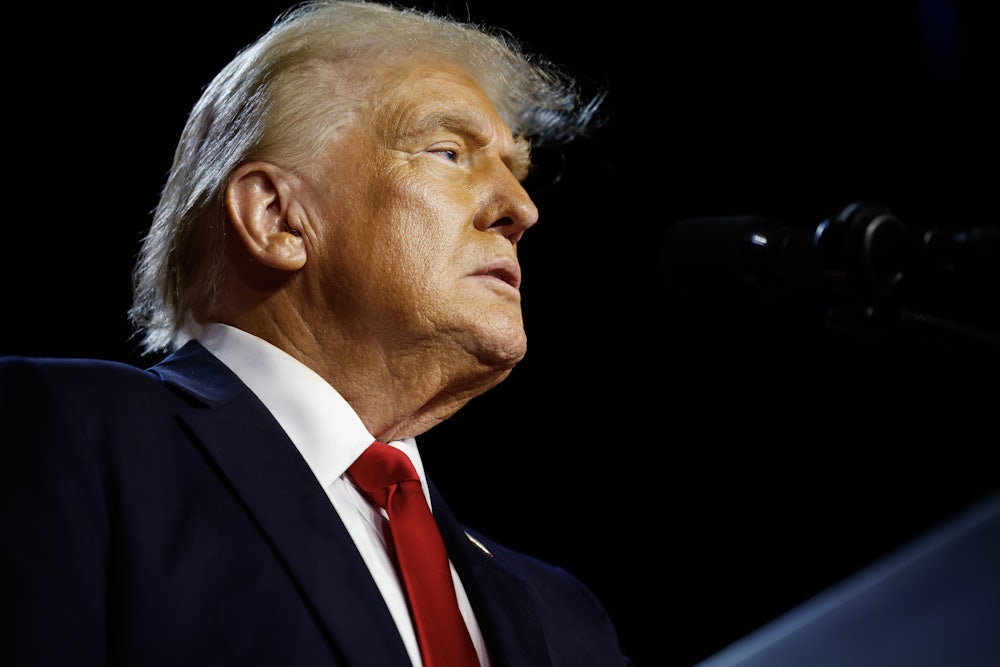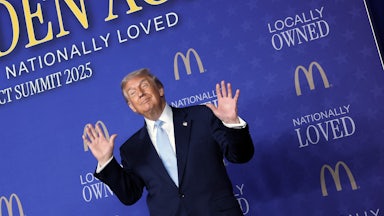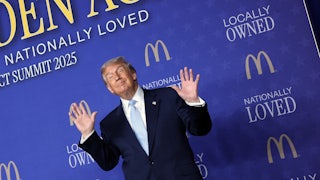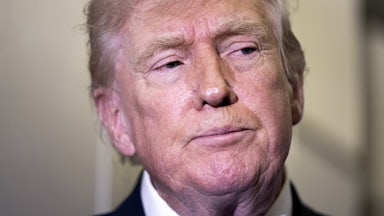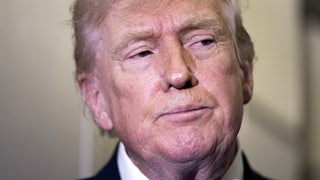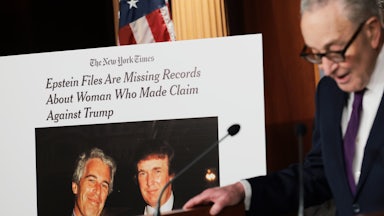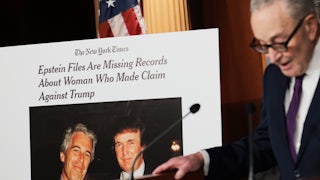“The Movie Industry in America is DYING a very fast death,” Donald Trump posted Sunday on Truth Social. America’s cultural elite would agree with that statement. It (OK, “we”) would even agree that globalization, and especially China—Trump’s favorite bad guy—are a big part of the problem. But slapping a 100 percent tariff on movies “produced in Foreign Lands,” as Trump is suggesting (a White House statement on Monday afternoon stated that “no final decisions have been made”), would make it harder, rather than easier, to find anything decent to watch on Saturday night. This puts the Hollywood tariff in the same culture-war category as revoking Harvard’s tax exemption, zeroing out the National Endowment for the Humanities, Trump’s hostile takeover of the Kennedy Center, and evisceration of the National Science Foundation.
Hollywood’s problem is most assuredly not any kind of trade imbalance. The Motion Picture Association reported last fall that the movie business generated a $7 billion trade surplus in 2022, the most recent year for which data were available. That’s the main reason not to put tariffs on foreign production. Tariffs are supposed to address trade imbalances.
The economic problem with Hollywood is management’s global search for cheap labor. “We are allowing California to become to the entertainment industry what Detroit has become to the auto industry,” Michael F. Miller Jr., a vice president of the International Alliance of Theatrical Stage Employees, told The New York Times last month. Miller estimated that in the last three years, film and television production lost 18,000 full-time jobs, most of them in California.
Using tariffs to force production back to the U.S. would be awkward because some foreign production by American studios has to occur overseas. That’s especially true of the “action and adventure” films that command about 60 percent of market share these days and often tell stories of international intrigue. The Mission: Impossible films, for instance, have been set in Prague, Dubai, Mumbai, Barcelona, and Helsetkopen, Norway, among other places.
On the other hand, a lot of studio production for the Mission: Impossible films is done at London’s Pinewood Studios, for no reason other than to save costs. Labor isn’t especially cheap in the United Kingdom; Pinewood is favored because the U.K. extends generous film subsidies for film production. Its government judges these sufficiently important that Prime Minister Keir Starmer gave a speech last December at Pinewood to tout them.
The U.S. government, by contrast, extends no tax subsidies for film production. Apparently Jon Voight, one of Trump’s three “special ambassadors” to Hollywood, favors creating some. From a policy standpoint, that’s a much better idea than a movie tariff. But it’s a political loser for Trump because MAGA judges Hollywood a citadel of wokeness. Indeed, cutting Hollywood’s taxes would be a political loser even for a Democrat, because Hollywood is also associated with economic privilege.
A better idea is to expand existing tax benefits in California, which lately has lost business not only to other countries but also to other states. Last fall, California Governor Gavin Newsom proposed more than doubling the state’s film and television tax credit from $330 million to $750 million. According to Newsom’s office, for years the existing program has been oversubscribed, meaning more productions applied for the tax credit than the state could accommodate under the $330 million ceiling. Seventy-one percent of productions that couldn’t secure California’s tax break ended up filming elsewhere.
I haven’t explained why a movie tariff would make it harder to find anything good to see on Saturday night. And what has China got to do with it? It’s not like film production is shifting to China. Allow me to explain.
When I agree that Hollywood is dying, I’m thinking not only about the labor problem of film production migrating out of the United States but also about the quality of the movies themselves. American movies have gotten really crappy! I’m a big movie buff, and I can count on one hand the number of American films I saw last year.
The reason is globalization. The U.S. share of the global box-office revenue shrank from 60 percent in the 1990s to less than 40 percent today, according to a 2021 study (“Globalization and the Rise of Action Movies in Hollywood”) by the economists Shi Qi of William and Mary and Tin Cheuk Leung of Wake Forest. The American movies this foreign audience craves aren’t the finely crafted, film-festival-ready oeuvre of Martin Scorsese or Steven Soderbergh or Spike Lee. What it likes are big stupid movies where lots of stuff gets blown up, preferably featuring superheroes. So that’s what Hollywood makes.
China is a huge part of this new audience; it’s now the world’s second-largest consumer market for movies, accounting for at least 10 percent of Hollywood’s annual grosses. It’s odd, I know, to think it a problem that China consumes too much of something made in America. But it is a problem because China’s moviegoers, for whatever reason, face significant cultural barriers in appreciating even halfway-ambitious American movies. Also, their government won’t permit any film with a serious theme that might call attention, however indirectly, to political repression at home. The result is that Hollywood makes a lot of big, dumb superhero movies.
Putting a tariff on foreign production won’t affect that problem. But unless Trump plans to exempt from his tariff foreign-language films, which as best I can tell he doesn’t, Trump will be doubling the price of a movie ticket to see a foreign film, by which I mean a foreign-language film made by foreigners. Two facts these days about foreign films: (1) They are almost always better than American-made films (even most indies, I’m sorry to report), and (2) They draw a very small audience, consisting mostly of the despised, Harris-voting cultural elite. I’m not a snob, I swear! I actually like the Mission: Impossible franchise! But most of the films I saw last year were foreign-language films because Hollywood just didn’t have a lot to offer me.
A tariff on foreign production would be a tariff on practically the only films that the cultural elite can still bear to watch. For Trump, I sense, that isn’t a bug. It’s a feature.
